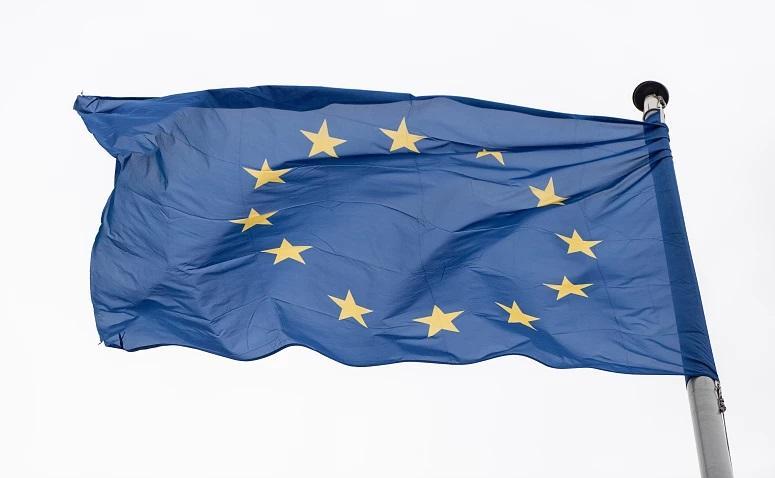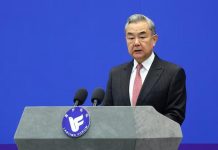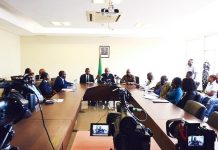Africa-Press – Mozambique. The European Union on Monday pointed to “irregularities” in the process involving the sixth local elections in Mozambique, held on 11 October and strongly contested by opposition parties and civil society, calling for “legislative improvements” in this area.
The position is expressed in the joint communiqué of the 34th session of Political Dialogue between the Government of Mozambique and the European Union (EU), held on Monday in Maputo, in which the government “gave a detailed description of the stages of the process, from voter registration to the validation and proclamation of the results,” among other matters.
“The government thanked the European Union for its support for the electoral processes in Mozambique,” reads the joint communiqué. “The European Union noted some irregularities throughout the electoral process and called on the authorities and Mozambican society to commit to making the necessary legislative improvements, as recognised in the Constitutional Council’s ruling of 24 November 2023.”
At this session, Mozambique’s delegation was led by the minister of foreign affairs and cooperation, Verónica Macamo, while the EU delegation was led by the ambassador in Maputo, Antonino Maggiore, accompanied by the ambassadors of Finland, Sweden, Spain, Italy, Portugal, Ireland and Germany, as well as the chargés d’affaires of France and the Netherlands, and the heads of the diplomatic bureaus of Belgium and Austria.
This 34th meeting was the last to be held under the Cotonou Agreement, under the slogan “Mozambique and the European Union: a consolidated Political Dialogue, elevated to a Partnership Dialogue”.
“With the signing on 15 November of the Samoa Agreement between the member countries of the Organisation of African, Caribbean and Pacific States (OACP) and the European Union, the Political Dialogue has evolved into a Partnership Dialogue,” the statement said.
Um profundo agradecimento à Ministra Macamo pela realização do 34o Diálogo Político UE??-Moçambique??, o último à luz do Acordo de Cotonou. O lema “Um Diálogo Político Consolidado elevado a Diálogo de Parceria” inaugura a nova era de cooperação UE-ACP com o Acordo de #Samoa2023. pic.twitter.com/3LfxdEOFRq
— Antonino Maggiore (@MaggioreEU) December 11, 2023
On 24 November, Mozambique’s Constitutional Council (CC) pointed out the “fragility” of the country’s electoral administration, calling for “deep reflection” on the role of electoral bodies.
“The Constitutional Council believes that there is a need for in-depth reflection on the role of the electoral commissions and the technical secretariats for electoral administration, since the aforementioned dichotomy has demonstrated a fragility in the control of the electoral administration system,” said the CC’s president, Lúcia Ribeiro, when reading the ruling that proclaimed the results of the local elections.
She also questioned the role of the district electoral commissions in the intermediate tabulation of the results of the local elections, since the law requires them to act through the technical secretariats for electoral administration: “The role of the electoral commissions is questioned here. Is it to be a simple assistant and then to sign the minutes and notices of the intermediate centralisation carried out by the STAE [Technical Secretariat for Electoral Administration]?”
The competition between the two electoral bodies exercising the same functions, with the district commissions “overshadowed” in this regard, creates confusion and makes the electoral process more complex, the ruling states.
The CC also considers provincial electoral bodies irrelevant, because they are effectively “couriers” for the work done at district level, which “jeopardises procedural speed and causes conflicts,” said Ribeiro. “It is important to clarify the role of the various electoral bodies in the municipal elections, since the results of the municipal elections are known through the intermediate tabulation carried out by the district or city commissions.”
The CC proclaimed the governing Frelimo party the winner of the 11 October municipal elections in 56 municipalities, down from 64 in the previous elections, with the main opposition Renamo party winning four. It ordered repeat elections in four, with these having been held this Sunday.
On 26 October, after the intermediate and general tabulation, the CNE had announced a Frelimo victory in 64 of the 65 municipalities where voters went to the polls.
For More News And Analysis About Mozambique Follow Africa-Press






